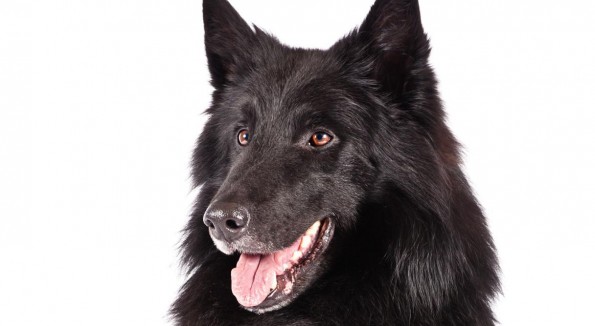
Diarrhea can be caused by parasites, bacteria or viruses, eating unusual food or non-food objects, or swallowing something that then became stuck in the intestine.
When Shadow, a sweet 7 week old Belgian Shepherd was brought to our clinic he had been showing signs of being sick for only 2 days. He was very quiet, would not eat for his owner and had diarrhea. On examination his abdomen was very painful and he was dehydrated. A small sample of feces was collected and within a few minutes a test that was done in clinic showed that he was positive for parvovirus.
Canine parvovirus affects all members of the dog family, including coyotes, wolves and foxes. It is everywhere in our environment. The virus kills cells in the intestine which causes the animal to experience abdominal pain, nausea, vomiting and diarrhea. Since the vomiting and diarrhea are usually severe, the animal can become severely dehydrated. This can lead to death if they are not treated appropriately. The virus also attacks cells in the bone marrow so that the animal’s white blood cells that protect against infection are destroyed; leaving the animal vulnerable to infection that may lead to death. If appropriately treated with hospitalization, intravenous fluids to replace fluids that are being lost due to vomiting and diarrhea, as well as antinausea, antibiotic and pain medications the puppy has a 70 to 80% chance of survival. However, hospitalization may be needed for as long as 5 to 7 days and there is the risk that despite treatment the puppy may succumb to infection or complications such as intestinal intussusception (when one portion of intestine moves into another, causing loss of blood supply and eventually death to that portion of intestine). Shadow’s new owner did not hesitate to get him the treatment he needed, and happily Shadow was able to go home full of puppy energy after only a few days.
There is a vaccine that is extremely effective at protecting our canine friends from this potentially life threatening virus. The vaccine is given to puppies starting at 6 to 8 weeks old, and is repeated 2 to 3 times (3 to 4 weeks apart) until the puppy is 14 to 16 weeks old. Puppies that have not received their full series of vaccines are at a relatively high risk of becoming sick from the virus. As well, canine housemates that are not up to date on vaccines are at risk. Once an animal becomes infected with parvovirus, they will continue to shed the virus in their feces for two weeks. The virus will live on materials in the home for up to one month and will live in the outside environment for 5 to 7 months. The virus survives in the cold, so may live in the environment longer if the weather is cold. It is killed by sunlight, steam and bleach.
Many of us have experienced that our puppies, and even some adult dogs, are not very discriminate about what they eat. Leaving the list of things that could have caused them to get diarrhea long. Parvovirus can be devastating and is so infectious, that it is important to identify if it could be the cause of the diarrhea and have the animal and its environment treated appropriately.
